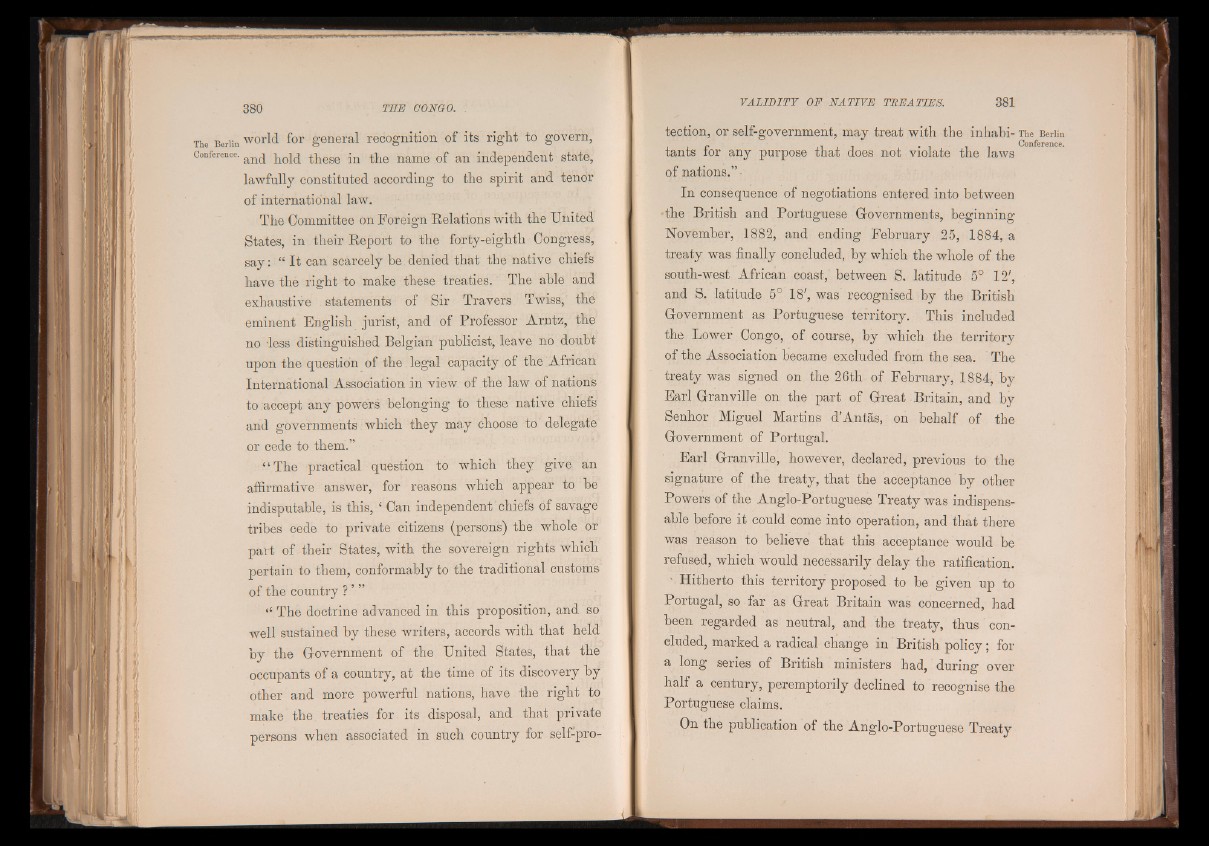
The Berlin world for general recognition of its right to govern,
Conference. an(j ^ ege in the name of an independent state,
lawfully constituted according to the spirit and tenor
of international law.
The Committee on Foreign Relations with the United
States, in their Report to the forty-eighth Congress,
say: “ It can scarcely be denied that the native chiefs
have the right to make these treaties. The able and
exhaustive statements of Sir Travers Twiss, the
eminent English jurist, and of Professor Arntz, the
no less distinguished Belgian publicist, leave no doubt
upon the question of the legal capacity of the African
International Association in view of the law of nations
to accept any powers belonging to these native chiefs
and governments which they may choose to delegate
or cede to them.”
“ The practical question to which they give an
affirmative answer, for reasons which appear to he
indisputable, is this, ‘ Can independent chiefs of savage
tribes cede to private citizens (persons) the whole or
part of their States, with the sovereign rights which
pertain to them, conformably to the traditional customs
of the country ? ’ ”
“ The doctrine advanced in this proposition, and so
well sustained by these writers, accords with that held
by the Government of the United States, that the
occupants of a country, at the time of its discovery by
other and more powerful nations, have the right to
make the treaties for its disposal, and that private
persons when associated in such country for selfoprotection,
or self-government, may treat with the inhabitants
for any purpose that does not violate the laws
of nations.” •
In consequence of negotiations entered into between
•the British and Portuguese Governments, beginning
November, 1882, and ending February 25, 1884, a
treaty was finally concluded, by which the whole of the
south-west African coast,’ between S, latitude 5° 12',
and S. latitude 5° 18', was recognised by the British
Government as Portuguese territory. This included
the Lower Congo, of course, by which the territory
of the Association became excluded from the sea. The
treaty was signed on the 26th of February, 1884, by
Earl Granville on the part of Great Britain, and by
Senhor Miguel Martins d’Antas, on behalf of the
Government of Portugal.
Earl Granville, however, declared, previous to the
signature of the treaty, that the acceptance I by other
Powers of the Anglo-Portuguese Treaty was indispensable
before it could come into operation, and that there
was reason to believe that this acceptance would be
refused, which would necessarily delay the ratification.
t Hitherto this territory proposed to be given up to
Portugal, so far as Great Britain was concerned, had
been regarded as neutral, and the treaty, thus concluded,
marked a radical change in British policy; for
a long series of British ministers had, during over
half a century, peremptorily declined to recognise the
Portuguese claims.
On the publication of the Anglo-Portuguese Treaty
The Berlin
Conference.